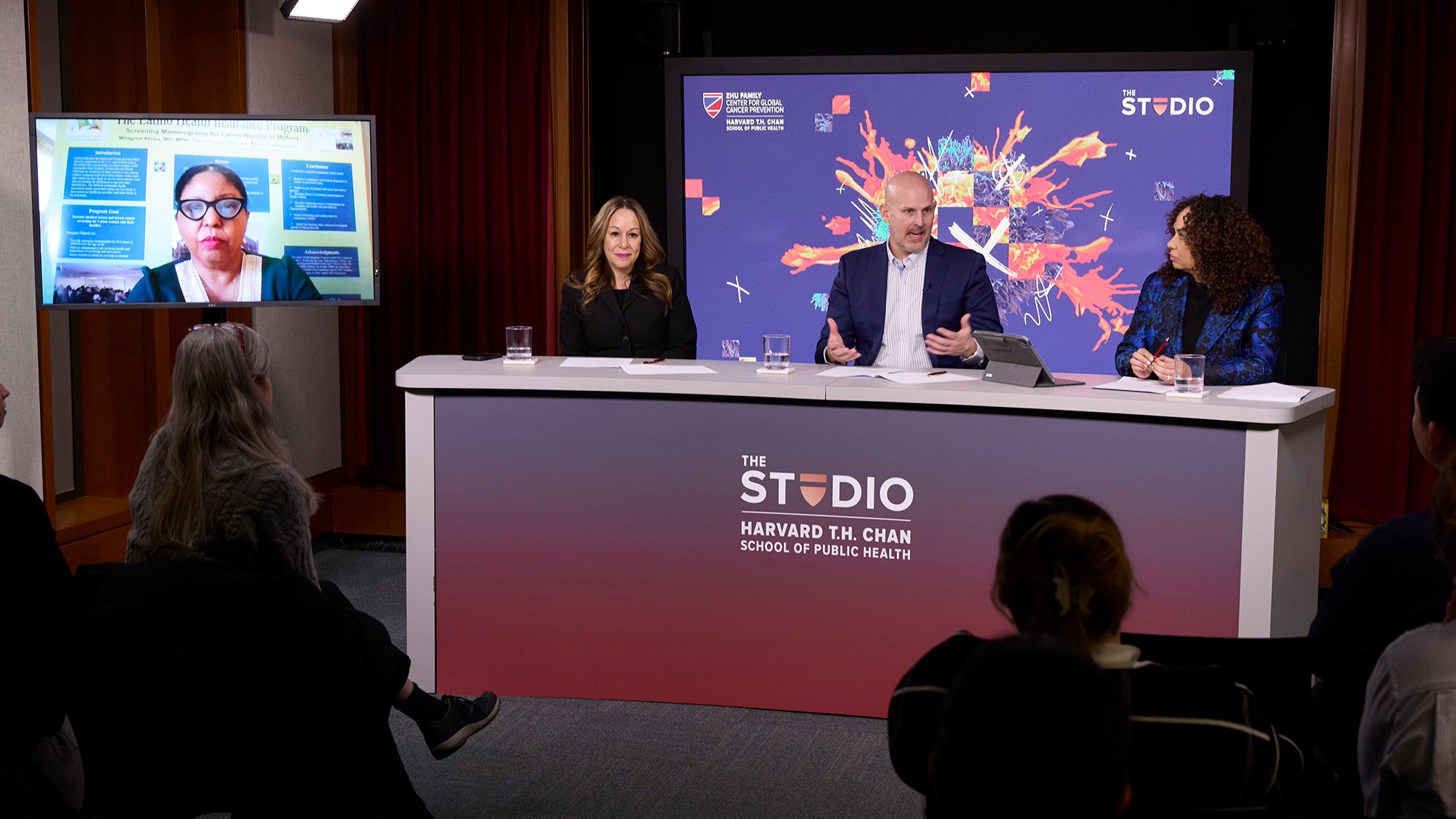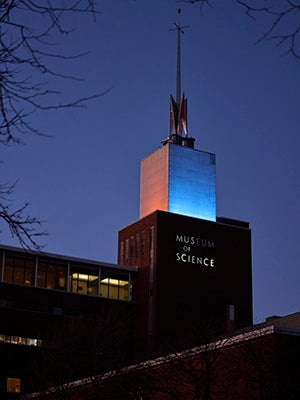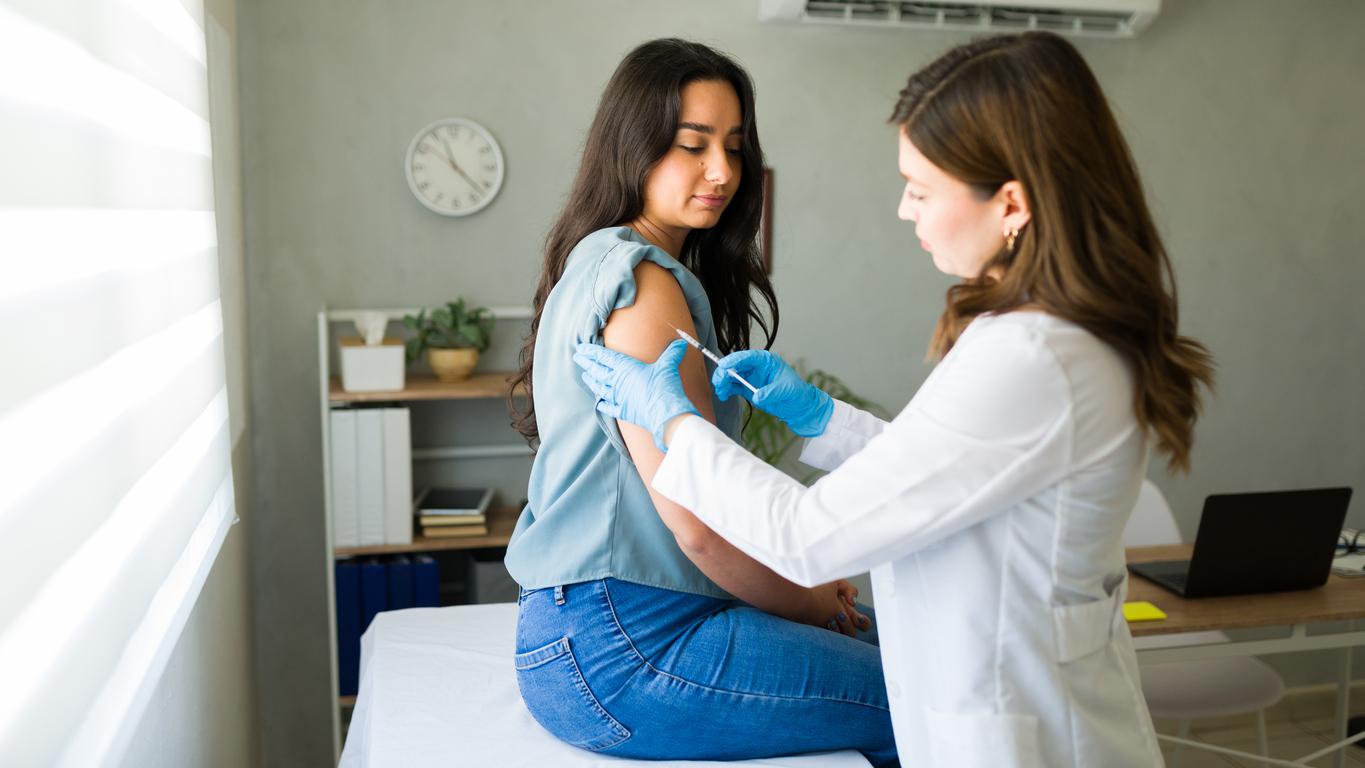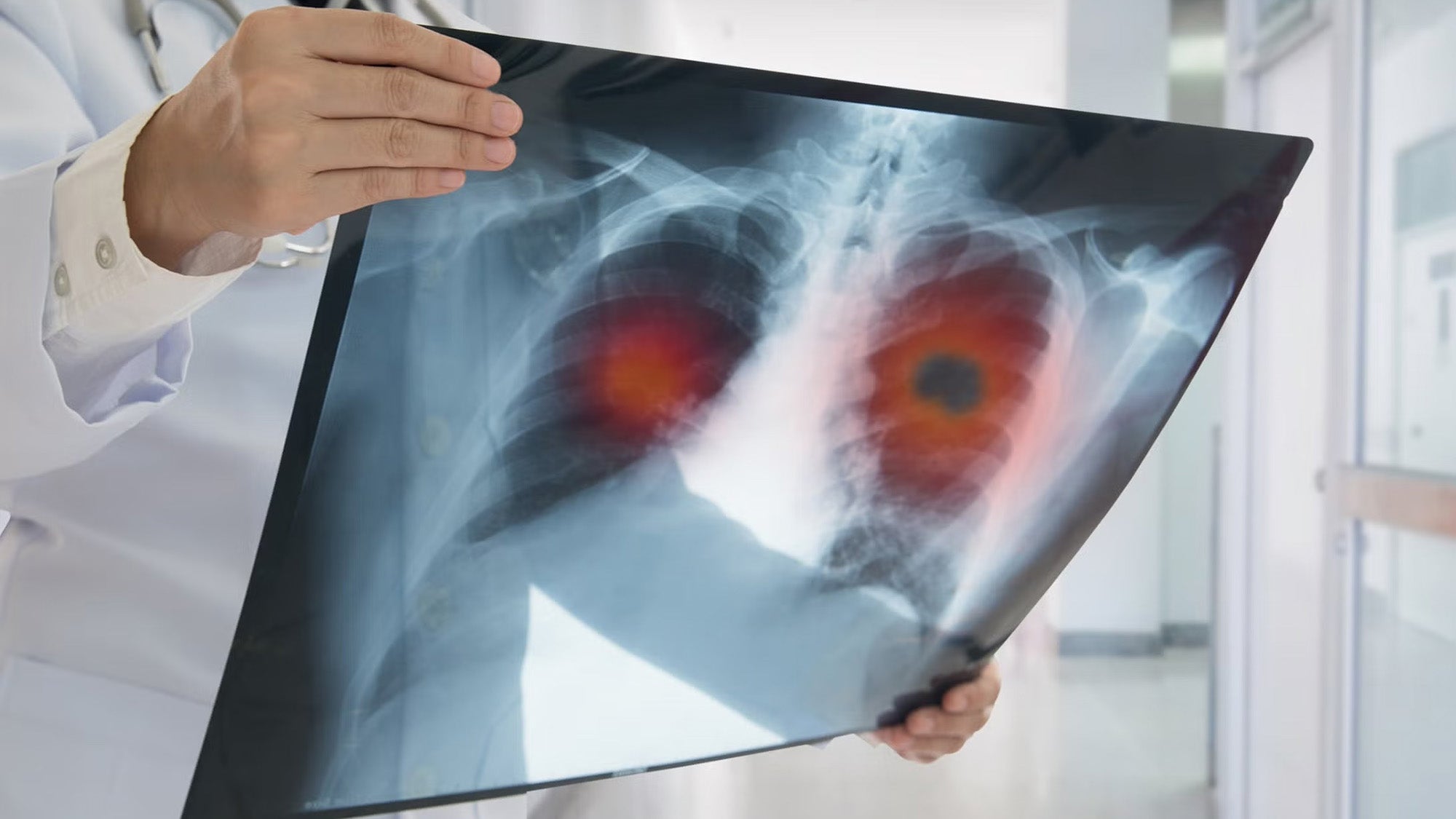Cancer Week events focus on navigating misinformation

The internet is rife with information about how to prevent and treat cancer, but much of what patients encounter is confusing, outdated, and harmful, according to experts at a recent Harvard T.H. Chan School of Public Health Studio event. The presenters shared research on the state of online cancer misinformation and its potential impact on cancer patients, and offered advice on how patients and their providers can better navigate this challenging information environment.
The Feb. 3 event was presented jointly with the Zhu Family Center for Global Cancer Prevention, as part of a series of events recognizing World Cancer Week. Speakers included Skyler Johnson, assistant professor in the Department of Radiation Oncology at Huntsman Cancer Institute and University of Utah School of Medicine, Stacy Loeb, professor of urology and population health at New York University, and Milagros Abreu, president/CEO and founder of The Latino Health Insurance Program, Inc. It was moderated by medical reporter Mallika Marshall.
Johnson and Loeb also spoke at a symposium moderated by Zhu Center Director Timothy Rebbeck, Vincent L. Gregory, Jr. Professor of Cancer Prevention, which was held at Dana-Farber Cancer Institute later that day.
Harmful consequences of misinformation
During the Studio event, Johnson noted that the vulnerability and anxiety cancer patients feel following their diagnosis can make them especially susceptible to misinformation. As the public’s response to the COVID-19 pandemic made clear, he said, people want certainty from scientists and medical providers. “People want a magic bullet. Some of these sources of misinformation might offer the promise of certainty, but unfortunately, it’s not true,” he said. “My concern is that if they follow [misinformed] guidance, it might impact their chance at a cure.”
Loeb, who specializes in prostate and bladder cancer, noted that misinformation covers all stages of patients’ experience with cancer, from prevention to survivorship. Posts, for example, sharing myths that waking at night to urinate is a symptom of prostate cancer or that survivors can’t have sex after treatment, may cause men to panic unnecessarily or avoid conventional treatment, she said.
Further elaborating on her research later in the day at the symposium, Loeb said that her team’s evaluation of prostate and bladder cancer content on social media found that 40% of these posts on YouTube, Instagram, and TikTok contained misinformation, as did 15% of the Pinterest posts and podcast episodes they studied.
Even when online information is accurate, it can be problematic, she said. Accurate information is often at a reading level that is too high for the average health consumer or lacks actionable guidance. In addition, there is a scarcity of content for non-English speakers and that represents diverse populations.
More accurate posts also tend to lose the battle for social media engagement, Johnson said. For example, a post about how chemotherapy is generally safe is likely to get fewer views than one touting a new “magic bullet” cancer cure.
This is concerning because information about cancer can be complex, he said. It can be hard to communicate to patients, especially those already skeptical of the health care system, that evidence-based treatments and recommendations evolve. As a result, patients may decide to pursue unproven or disproven treatments such as special diets and supplements and forgo conventional treatment.
During the symposium, Johnson outlined the potential consequences of these decisions. One of his studies showed that among patients with curable breast, lung, and prostate cancers, those who chose alternative treatments had worse five-year survival compared to patients who underwent evidence-based treatment (58% vs 87%). He also said that while complementary therapies such as massage or mindfulness can help patients better cope with their illness, some nutritional advice can interfere with treatment. For example, giving up sugar and losing too much weight can affect chemotherapy.
Addressing patients’ questions
While care teams are the best sources of information, there often is not enough time to address all of a patients’ questions during an appointment, Loeb said during the Studio event. Given that patients will seek out other information online and from friends and family members, providers need to be proactive about ensuring that patients are equipped to identify reliable sources, she said.
She suggested giving patients an “information prescription” with recommended sites including university and government sources. During the symposium, Johnson shared what he called his CRAP Score for helping patients evaluate sources: “claims too good to be true, requests for money, anecdotal, publisher unknown.”
During the Studio event, Abreu stressed the importance of countering misinformation by building trust with patients and working to understand how their values may impact their care decisions.
Informal Q&As, cooking demonstrations

The Zhu Center held additional events on Feb. 4, World Cancer Day. These included an “ask the experts” table at the School’s Sebastian’s Café, which provided the community with an informal opportunity to have their questions answered. It was followed by a cooking demonstration and tasting of healthy bites and mocktails, and the lighting of landmark buildings around Massachusetts in symbolic blue and orange. Throughout the week, cafeterias at Harvard’s Longwood Medical Area Schools offered cancer-mindful special menus featuring items prepared with ingredients and cooking methods that have been shown to support long-term health.


